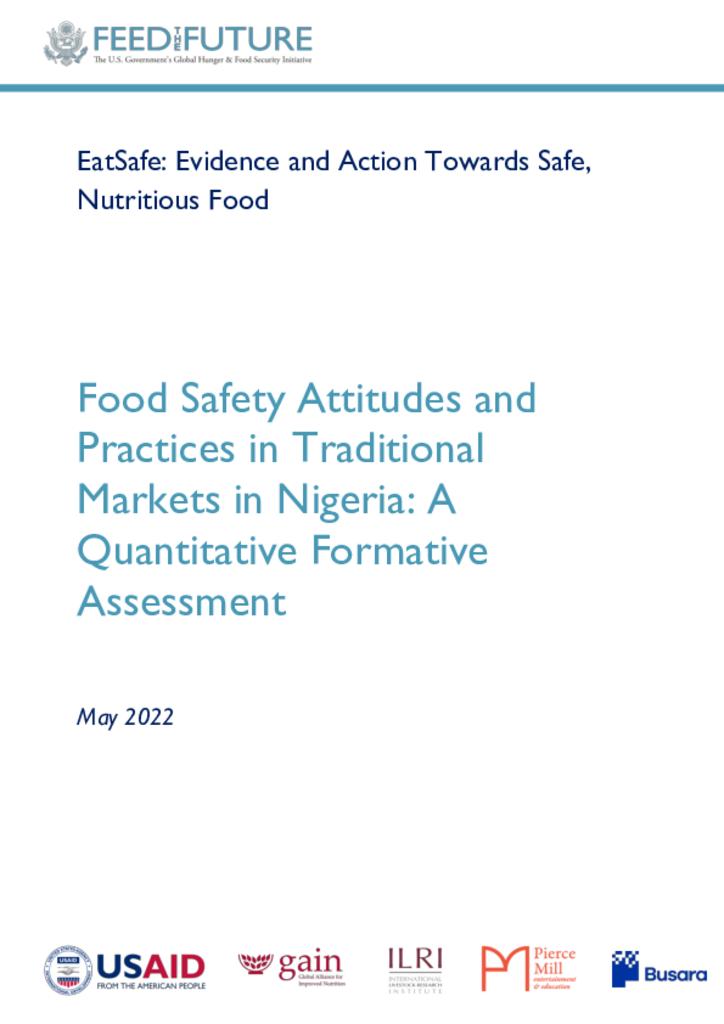EatSafe surveyed consumers and vendors, then directly observed vendor behaviors, to understand the knowledge, attitudes, and practices of consumers (n=470) and vendors (n=478). All of EatSafe’s Key Commodities in Nigeria are commonly purchased in the markets, though were not perceived as high risk by either consumers or vendors. While vendors’ overall socioeconomic status was relatively high, female vendors faced a significantly higher probability of poverty. Vendors believe prices are the top factor that influence whether customers return, while cleanliness was cited infrequently. Direct observations of vendor found vendor practices could contribute to food contamination. For instance, food is usually not covered, is handled with bare hands that also touch money, and perishable foods are kept at ambient temperature. Handwashing or sanitizing was observed but was limited.
